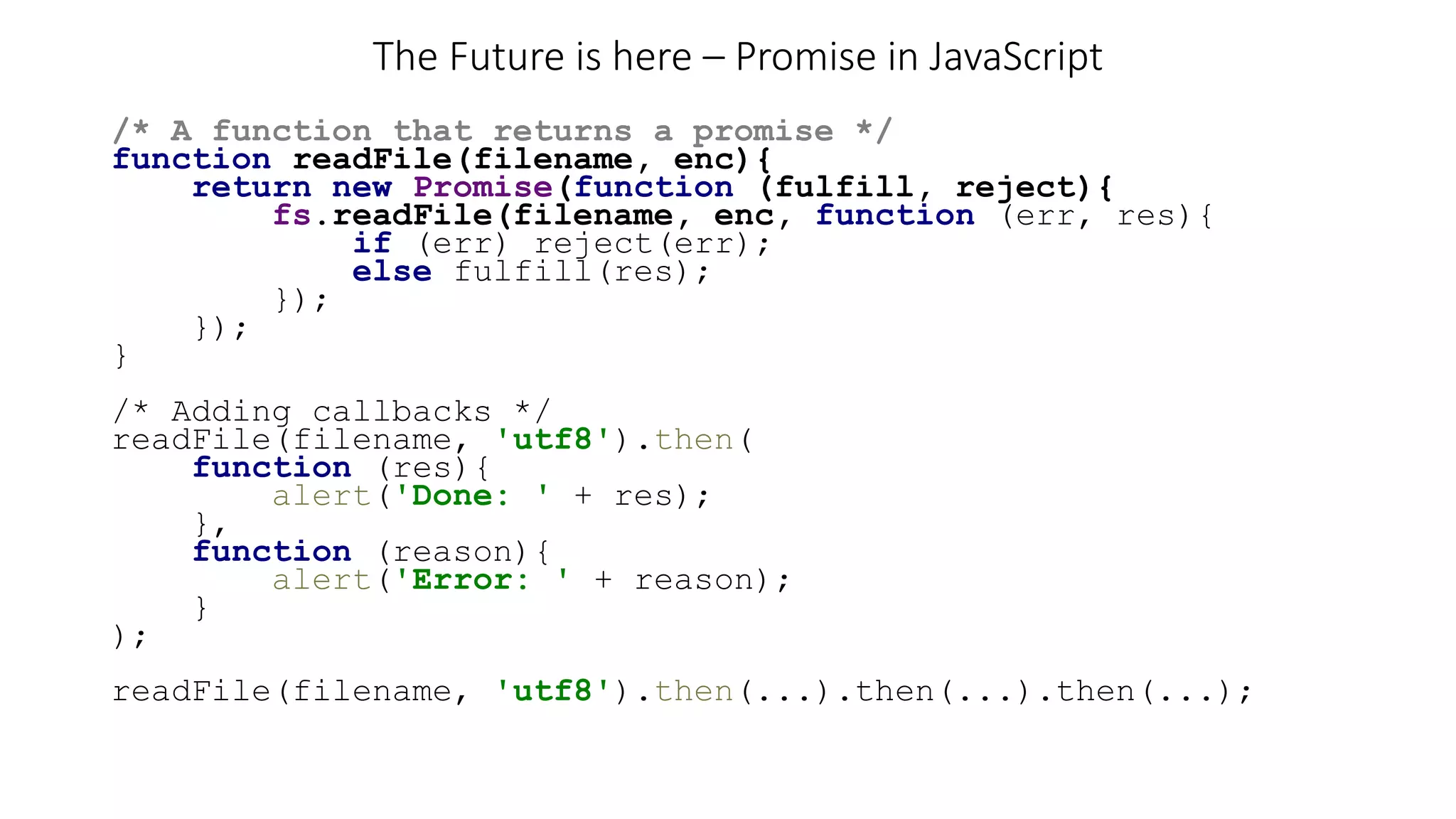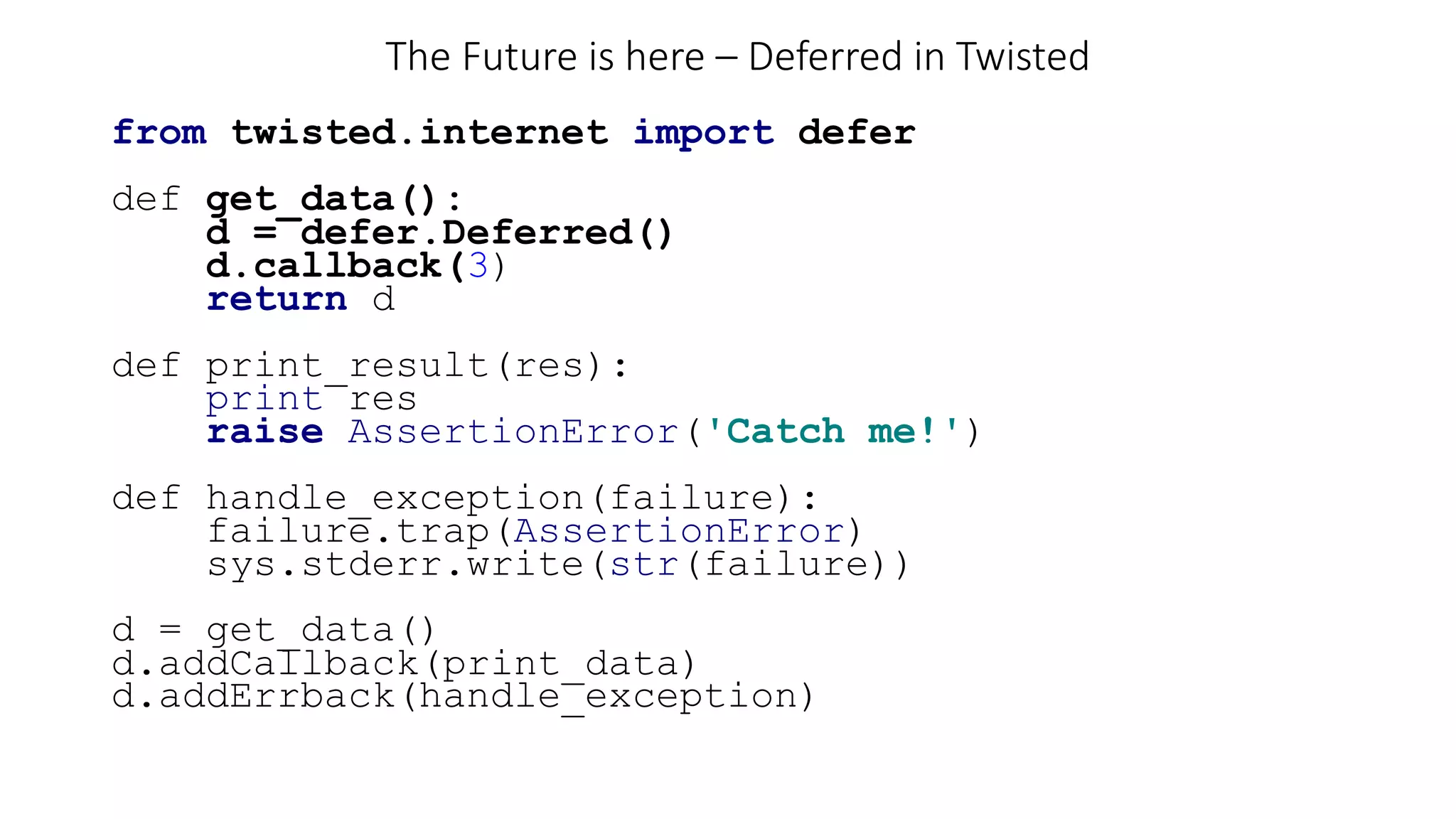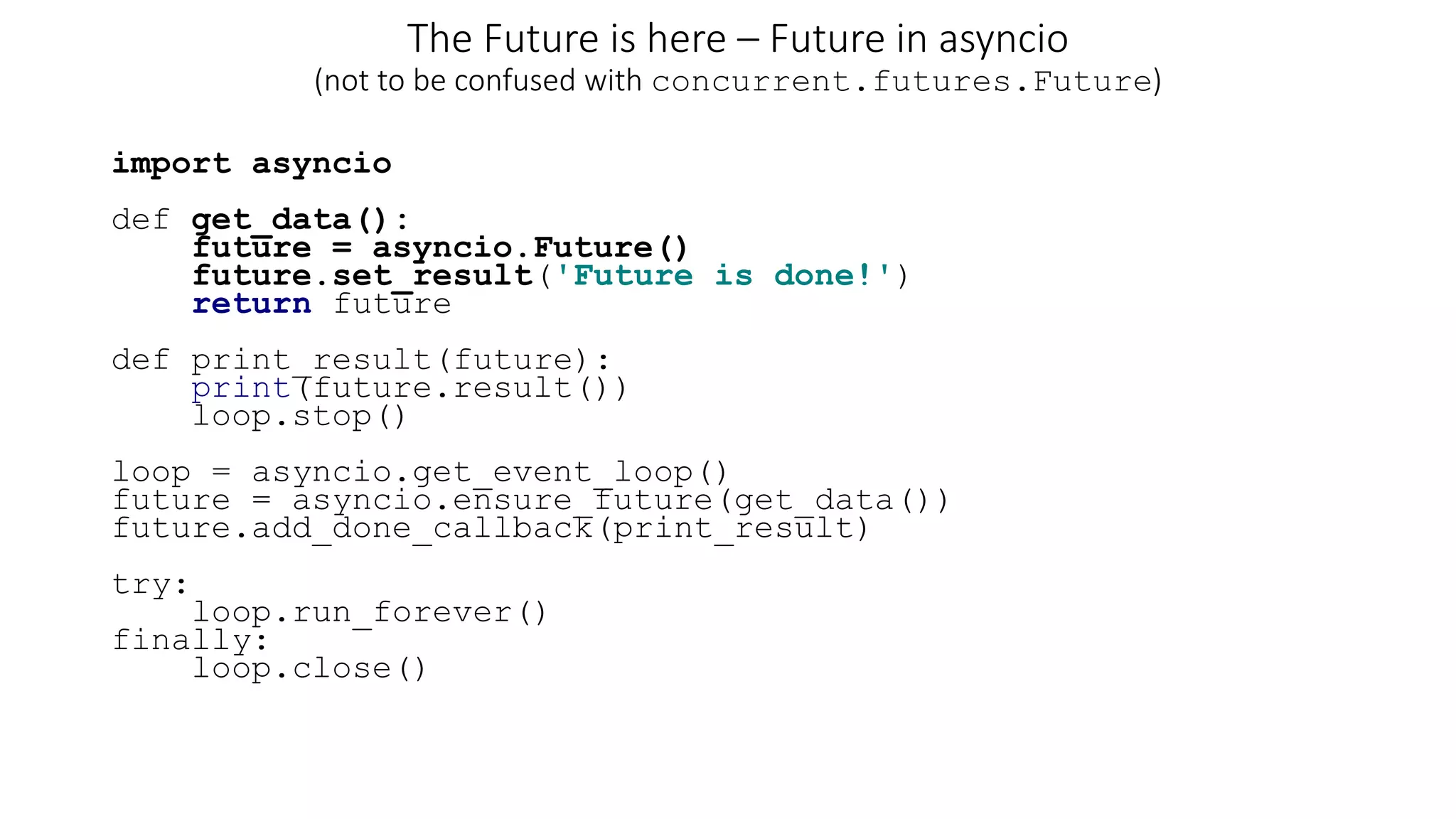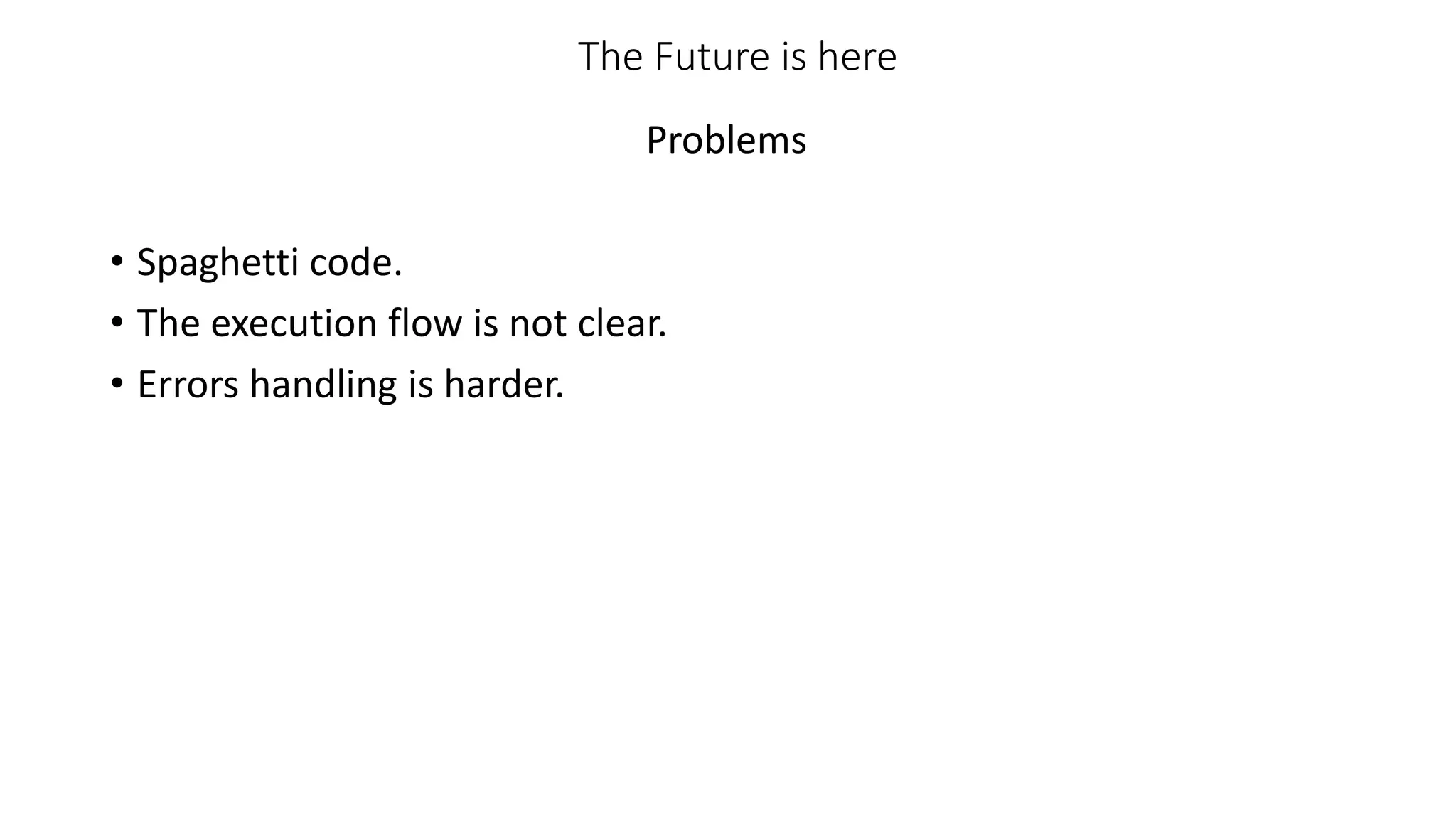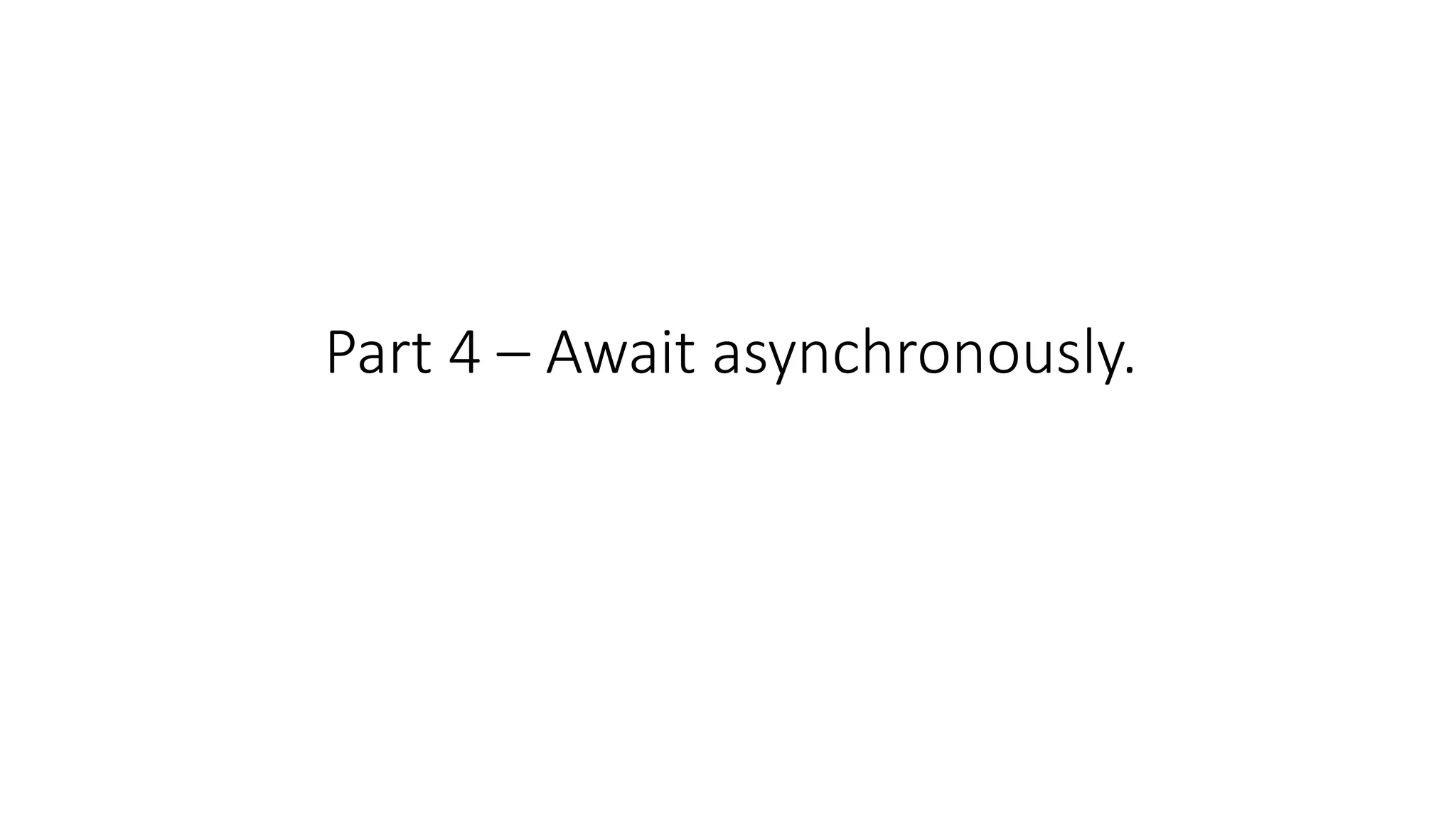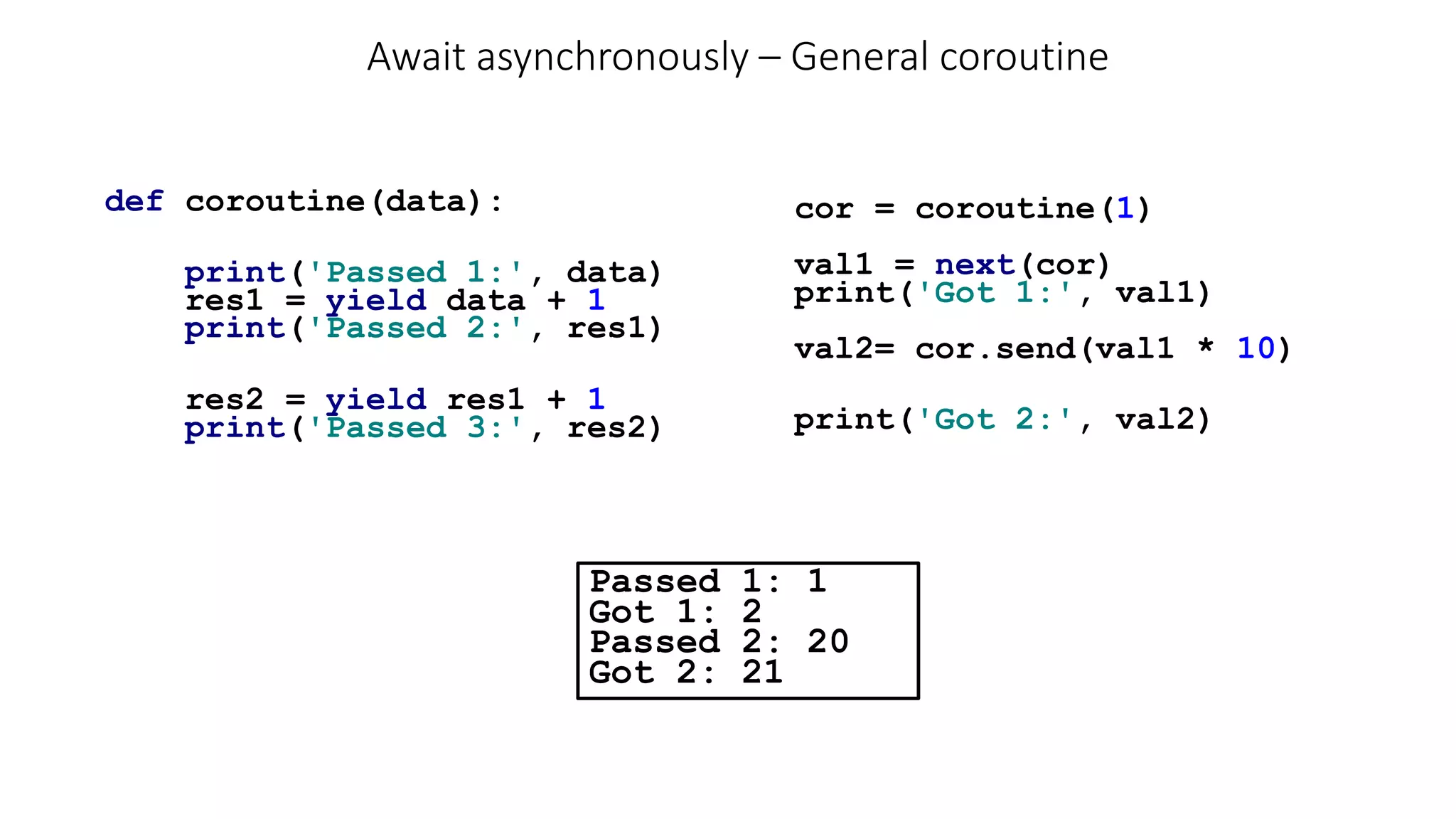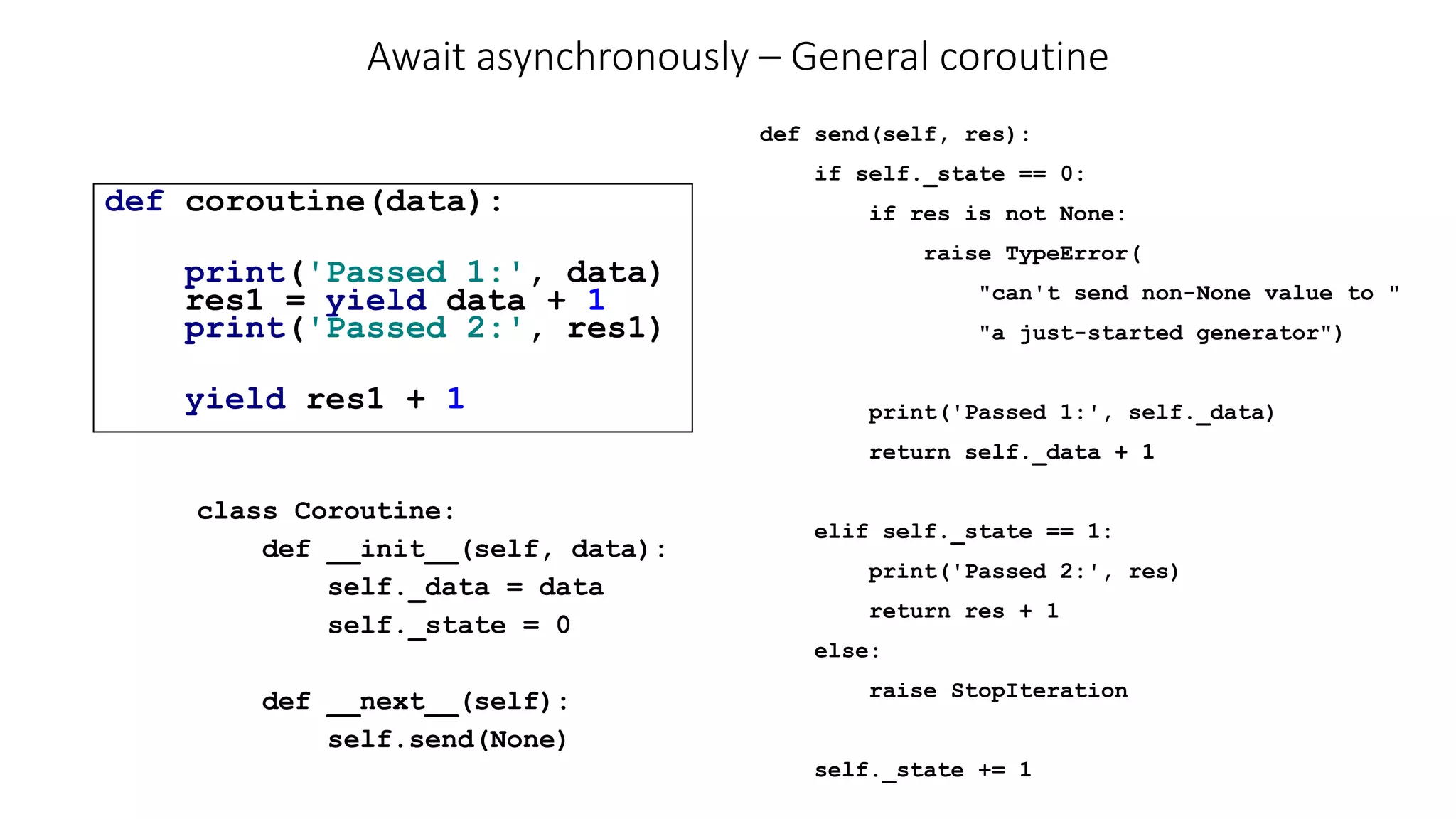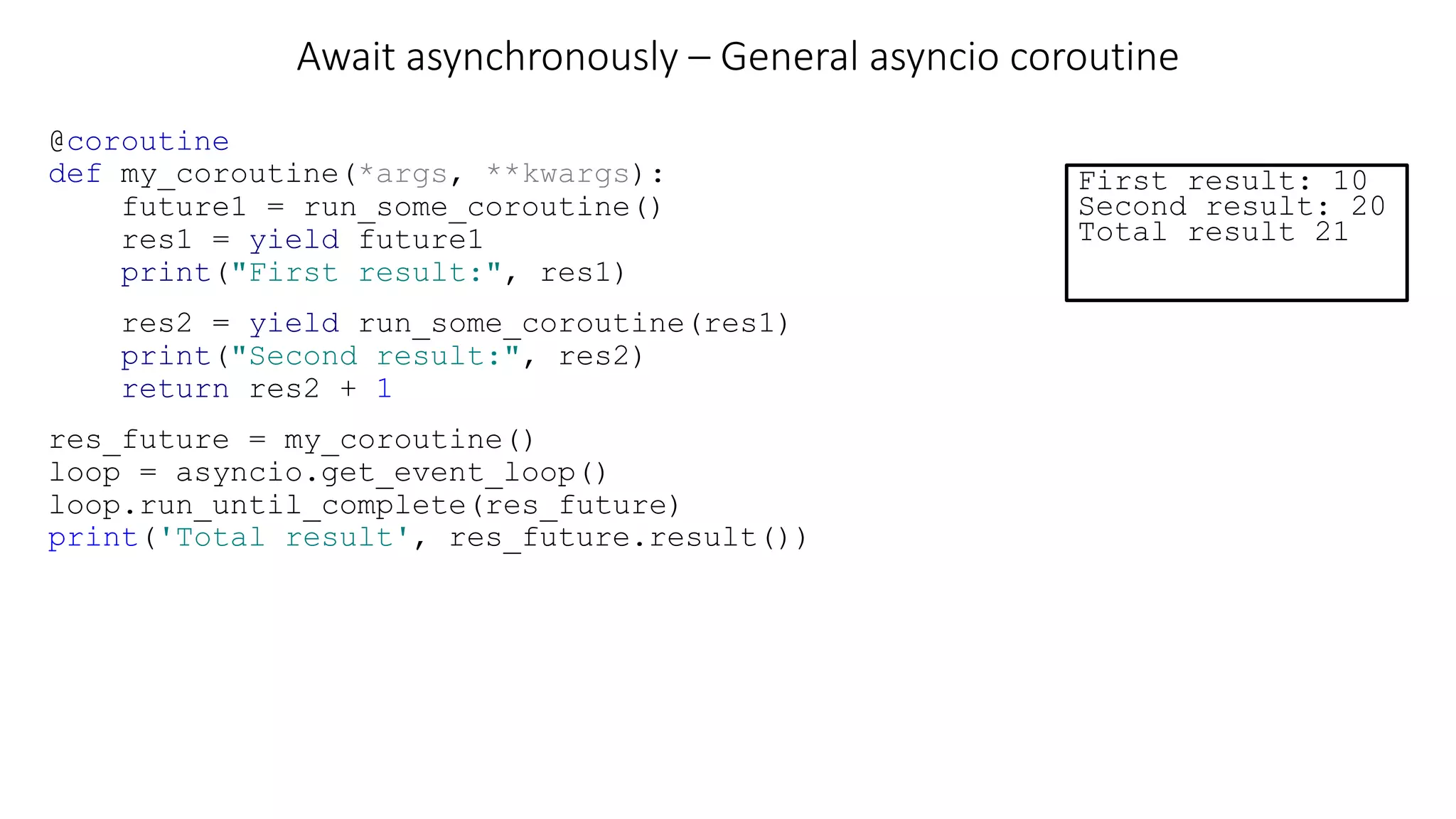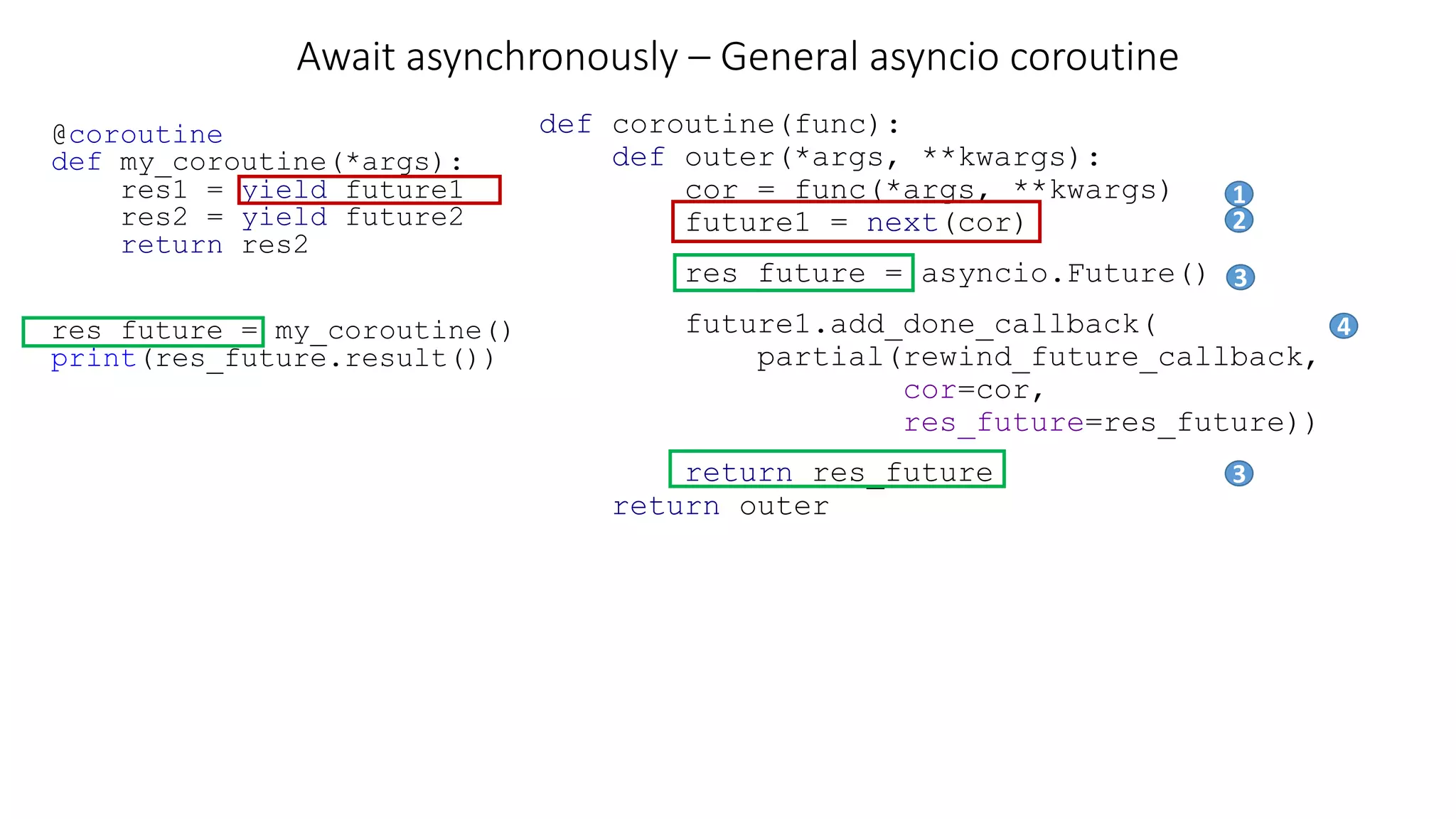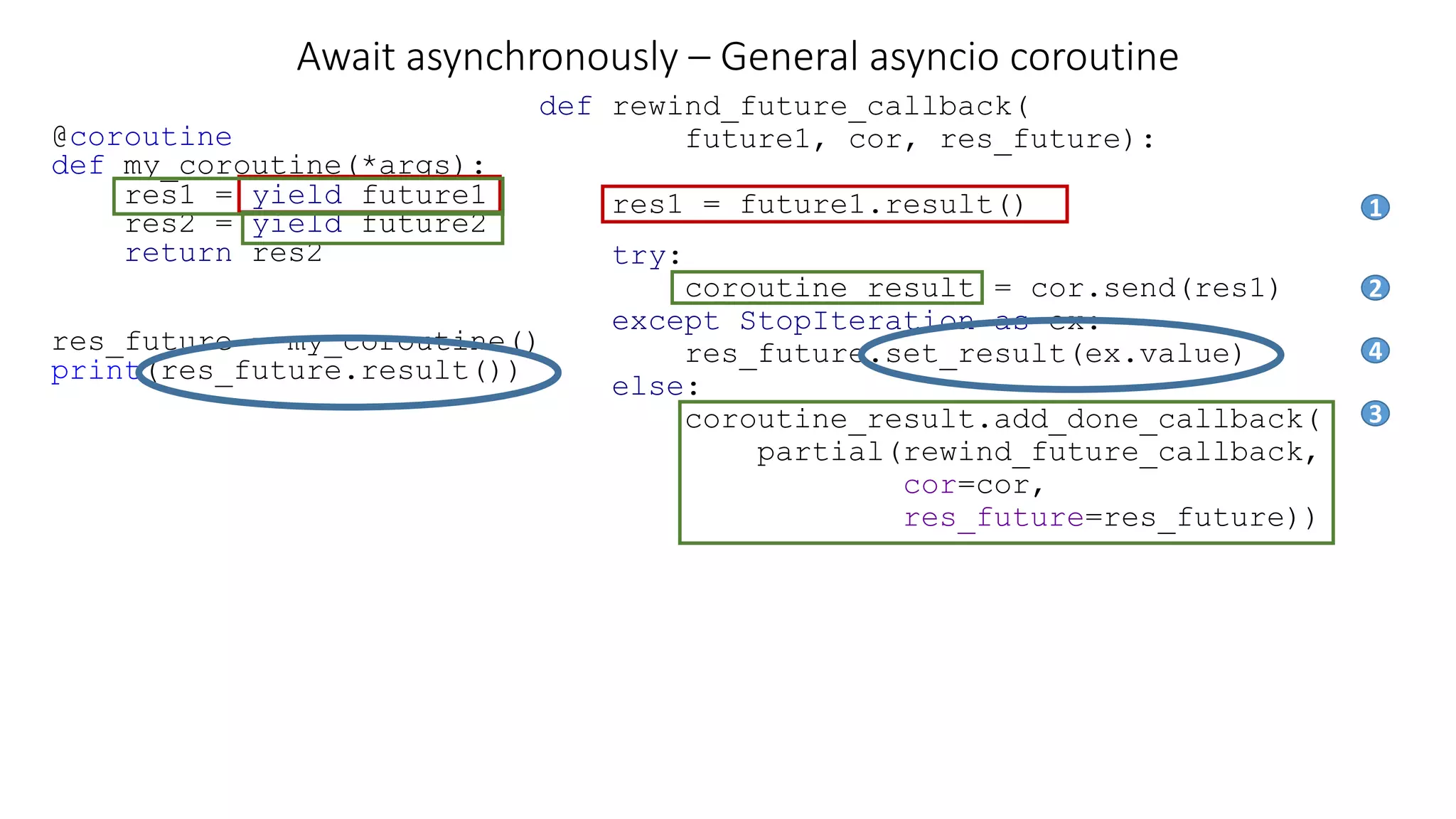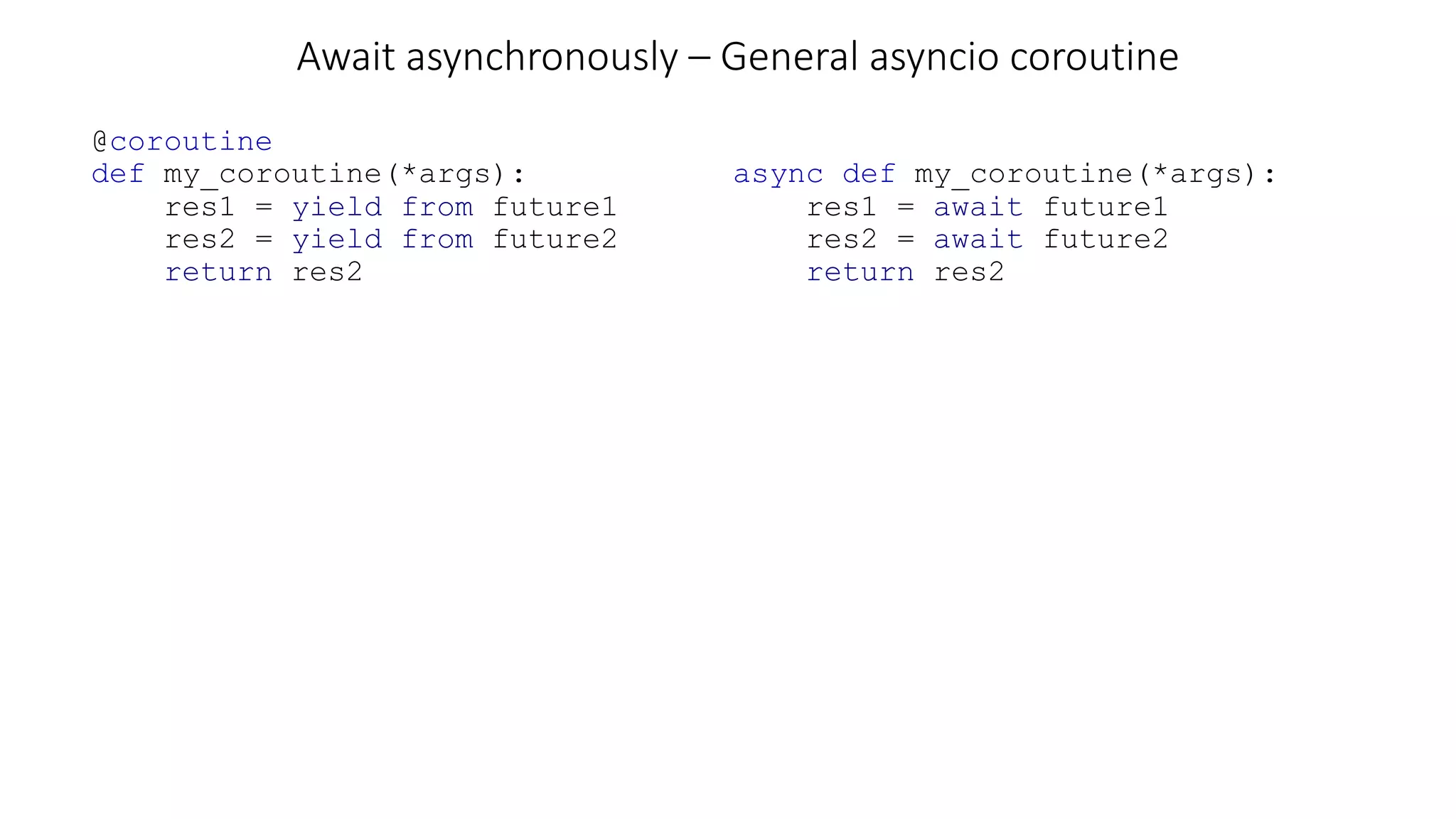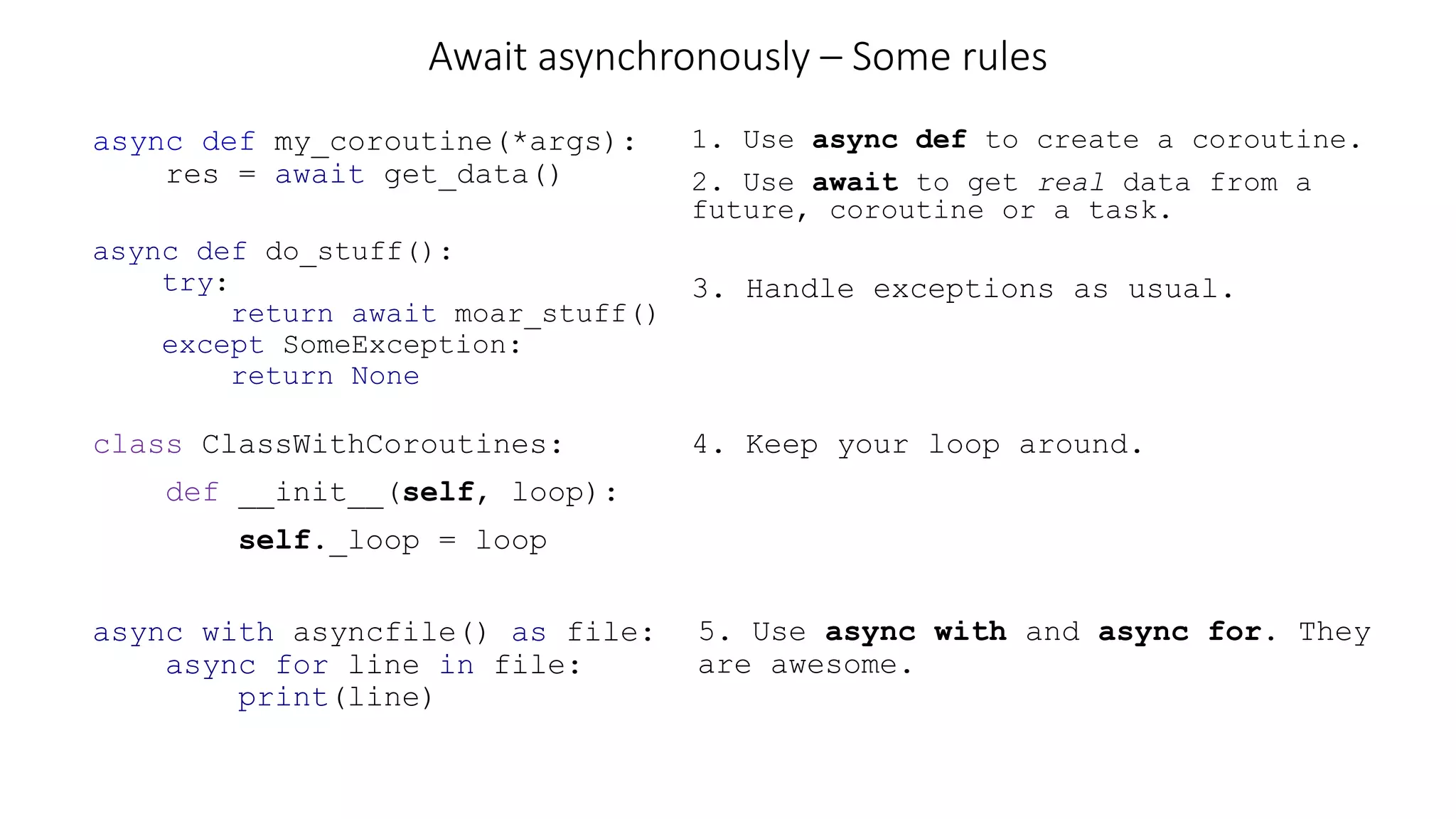The document introduces asynchronous programming and coroutines. It discusses:
1. The evolution of input/output loops from blocking to asynchronous models using callbacks and futures. Examples include Twisted, Tornado, Tkinter.
2. How futures/promises allow adding callbacks to be notified of results asynchronously, avoiding blocking. Examples shown in JavaScript, Twisted, asyncio.
3. Key aspects of coroutines like yielding and awaiting futures to resume execution asynchronously. Rules for writing asyncio coroutines in Python are provided.
4. Asynchronous programming allows concurrent execution without blocking, improving responsiveness through asynchronous callbacks and coroutines.


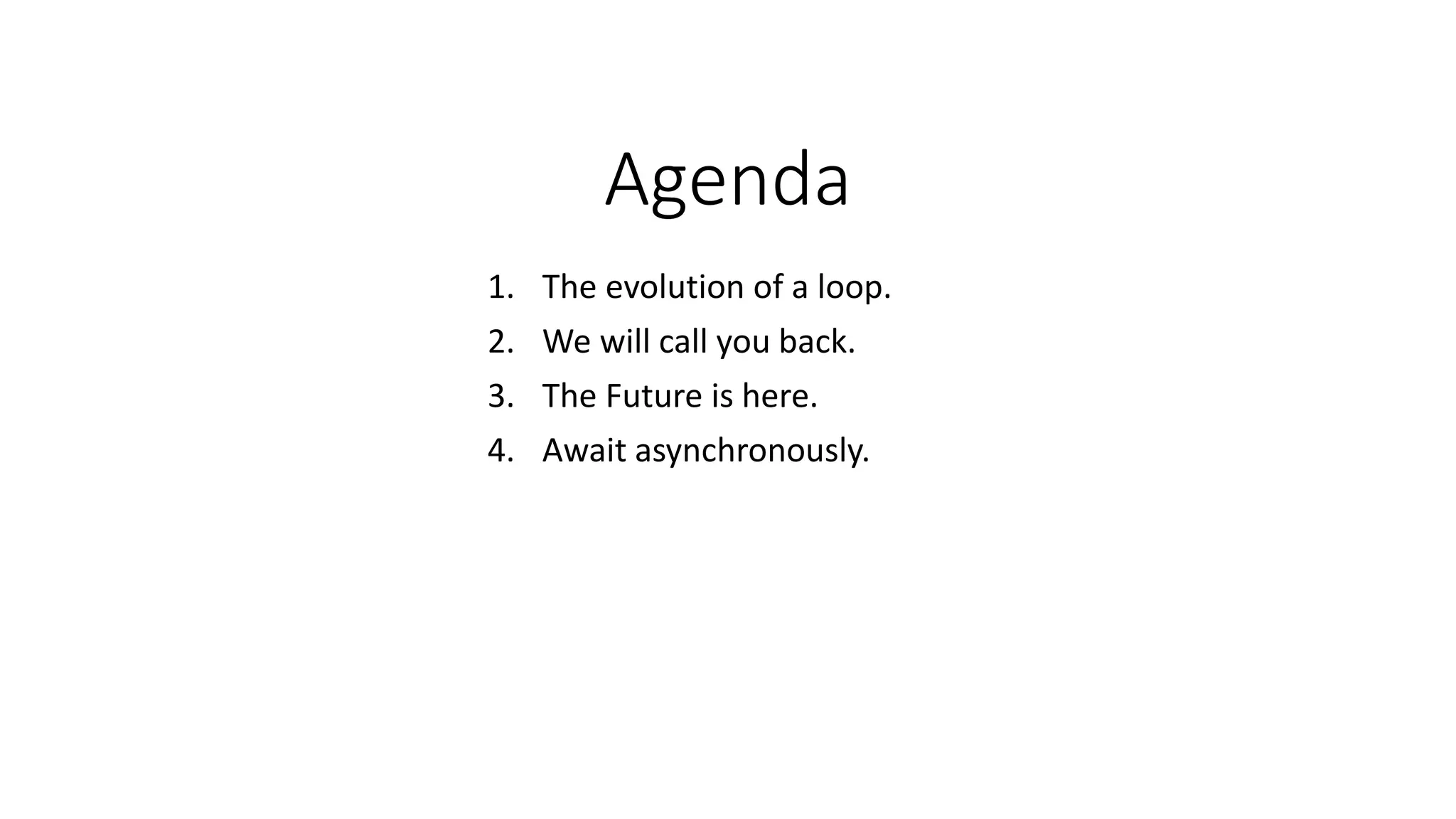

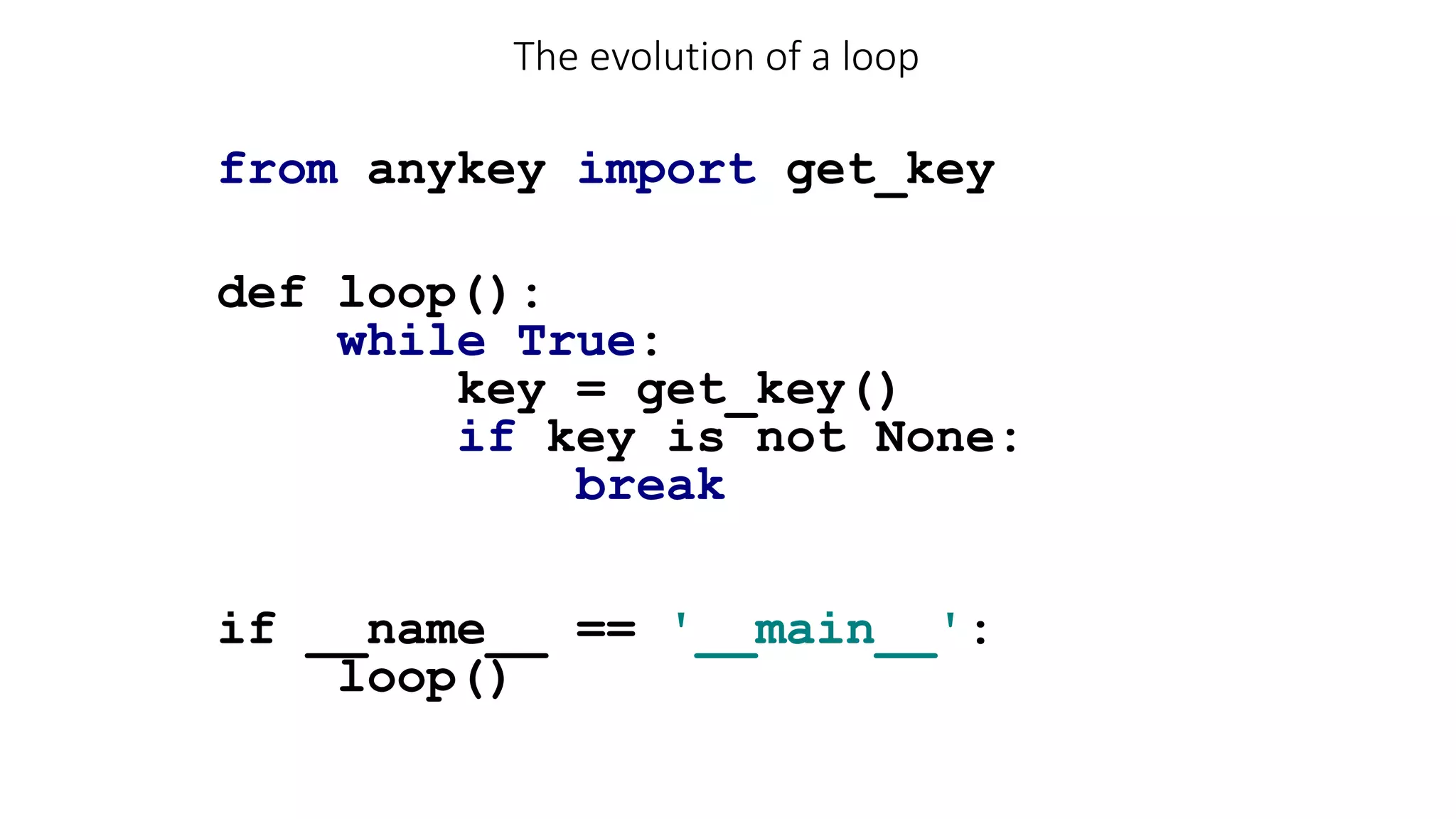
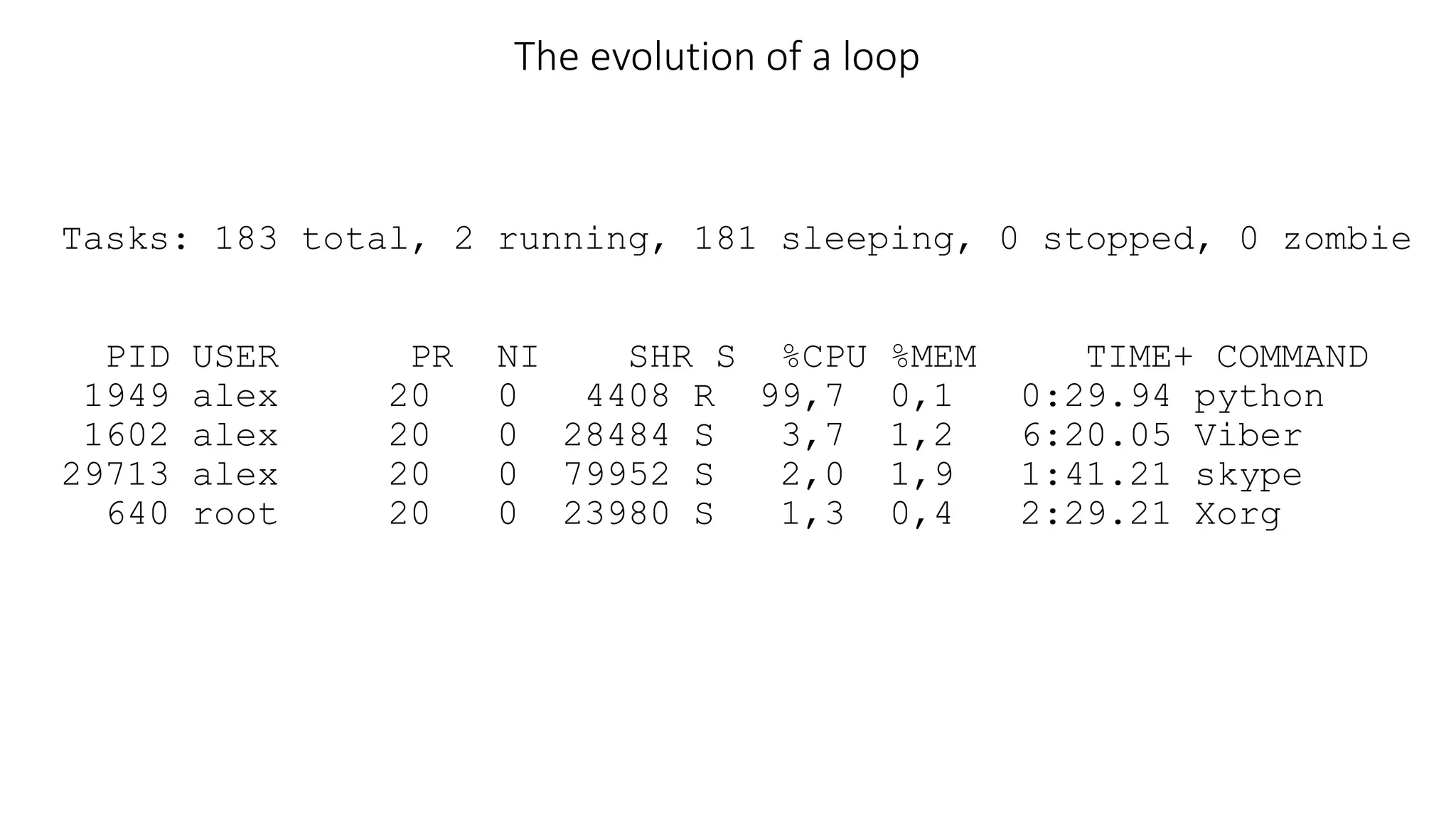
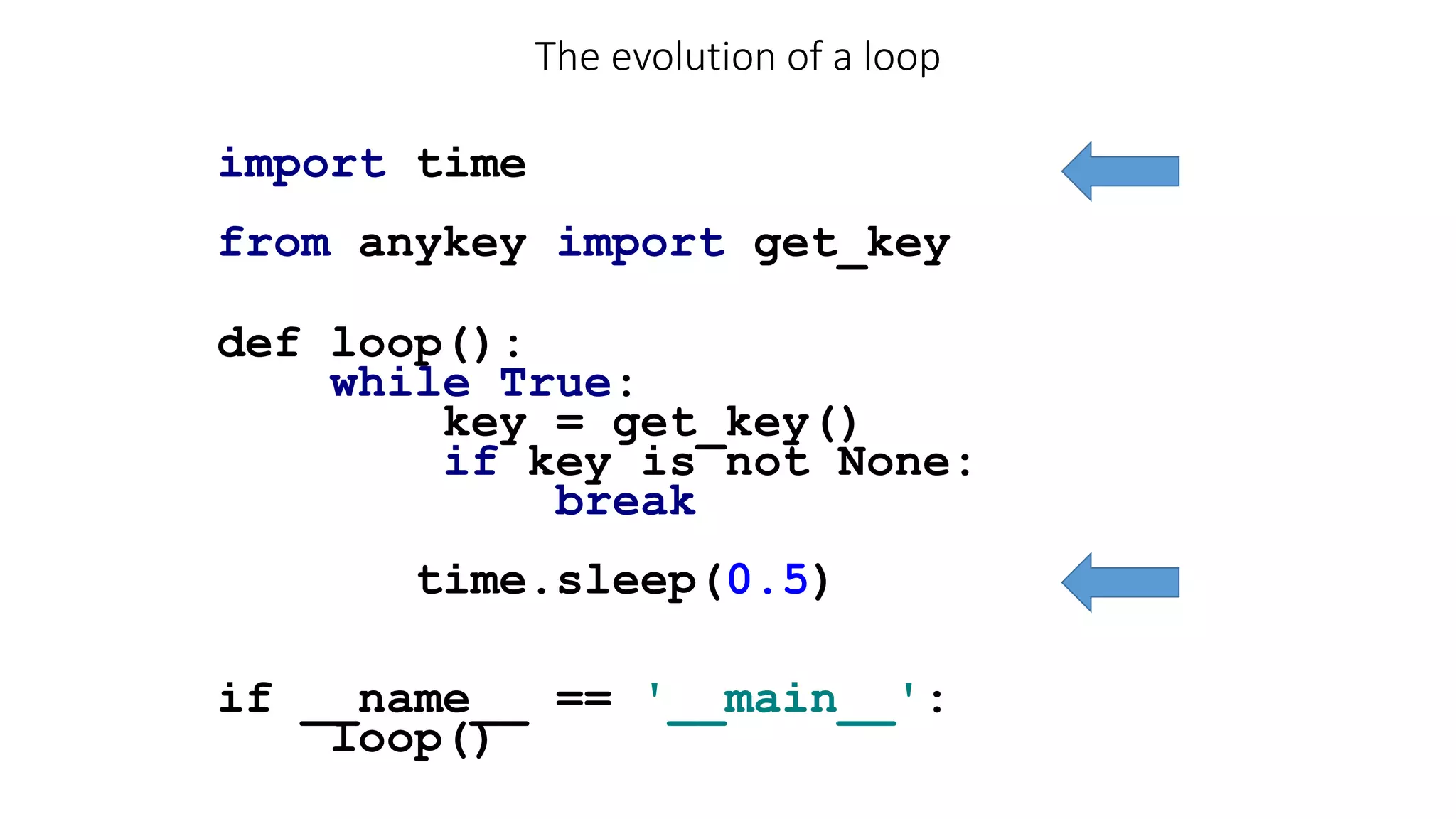
![The evolution of a loop – `select` example.
# twisted/internet/selectreactor.py
# class SelectReactor... Kinda of.
def doSelect(self, timeout):
r, w, ignored = _select(self._reads,
self._writes,
[], timeout)
for selectables, method in ((r, "doRead"), (w, "doWrite")):
for selectable in selectables:
self._doReadOrWrite(selectable, method)](https://image.slidesharecdn.com/asynchronous-160924053622/75/Introducing-to-Asynchronous-Programming-8-2048.jpg)
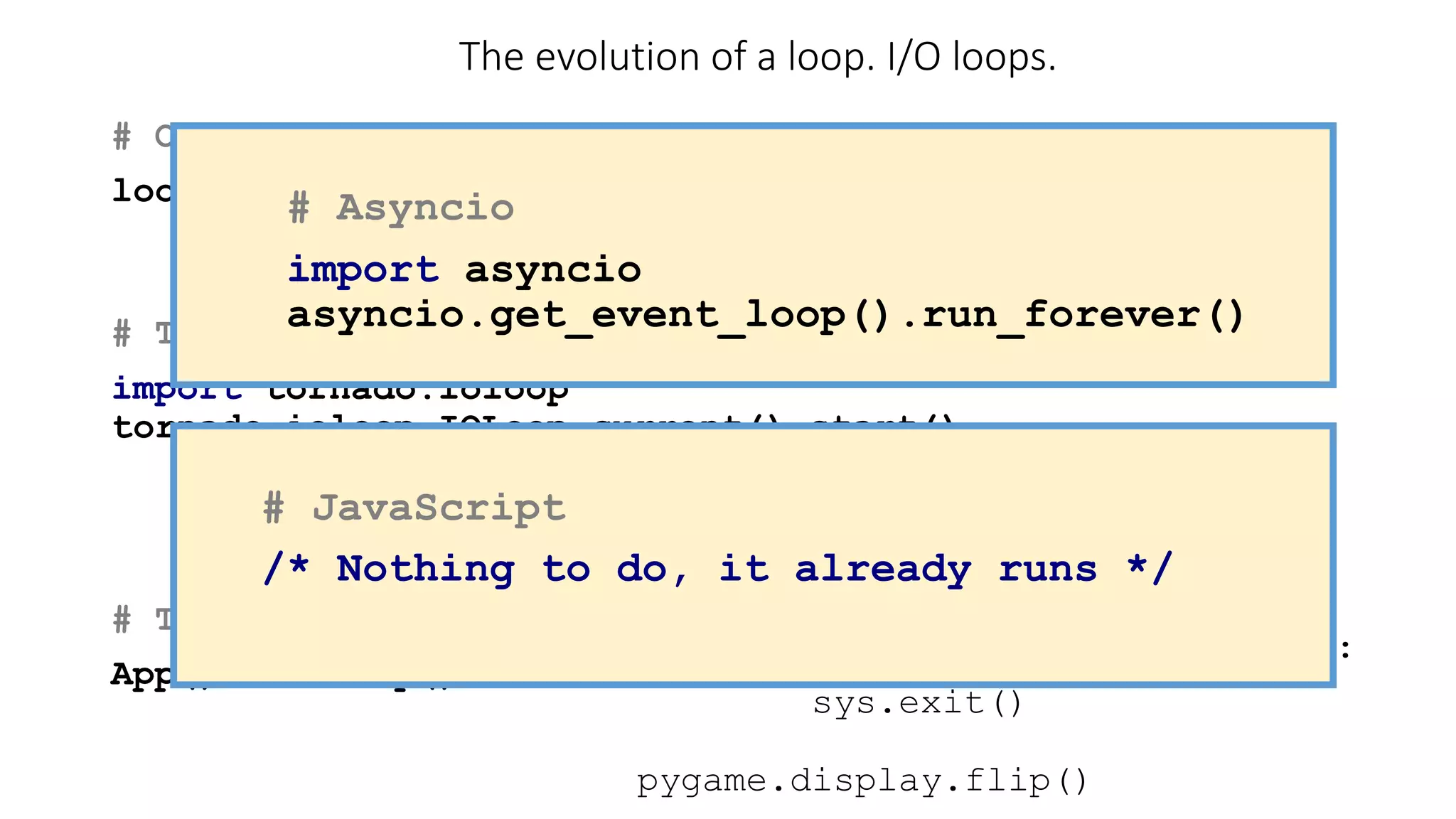


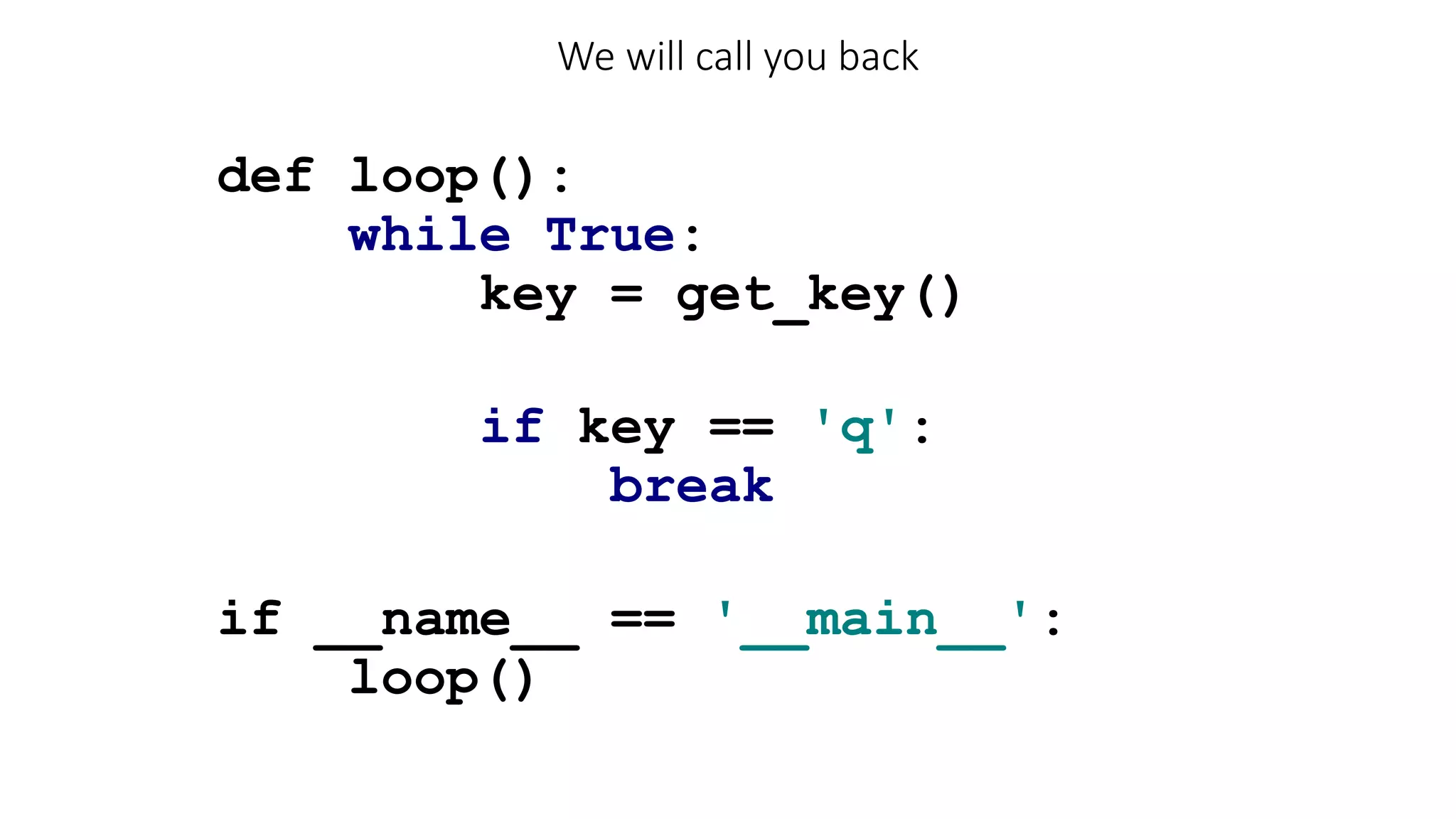
![We will call you back
def loop():
while True:
key = get_key()
if key == 'a':
go_left()
elif key == 'b':
...
elif key == 'c':
...
elif key == 'q':
break
if __name__ == '__main__':
loop()
def loop(callbacks):
while True:
key = get_key()
if key in callbacks:
callbacks[key]()
elif key == 'q':
break
if __name__ == '__main__':
loop({
'a': go_left,
'b': ...,
'c': ...,
})](https://image.slidesharecdn.com/asynchronous-160924053622/75/Introducing-to-Asynchronous-Programming-13-2048.jpg)
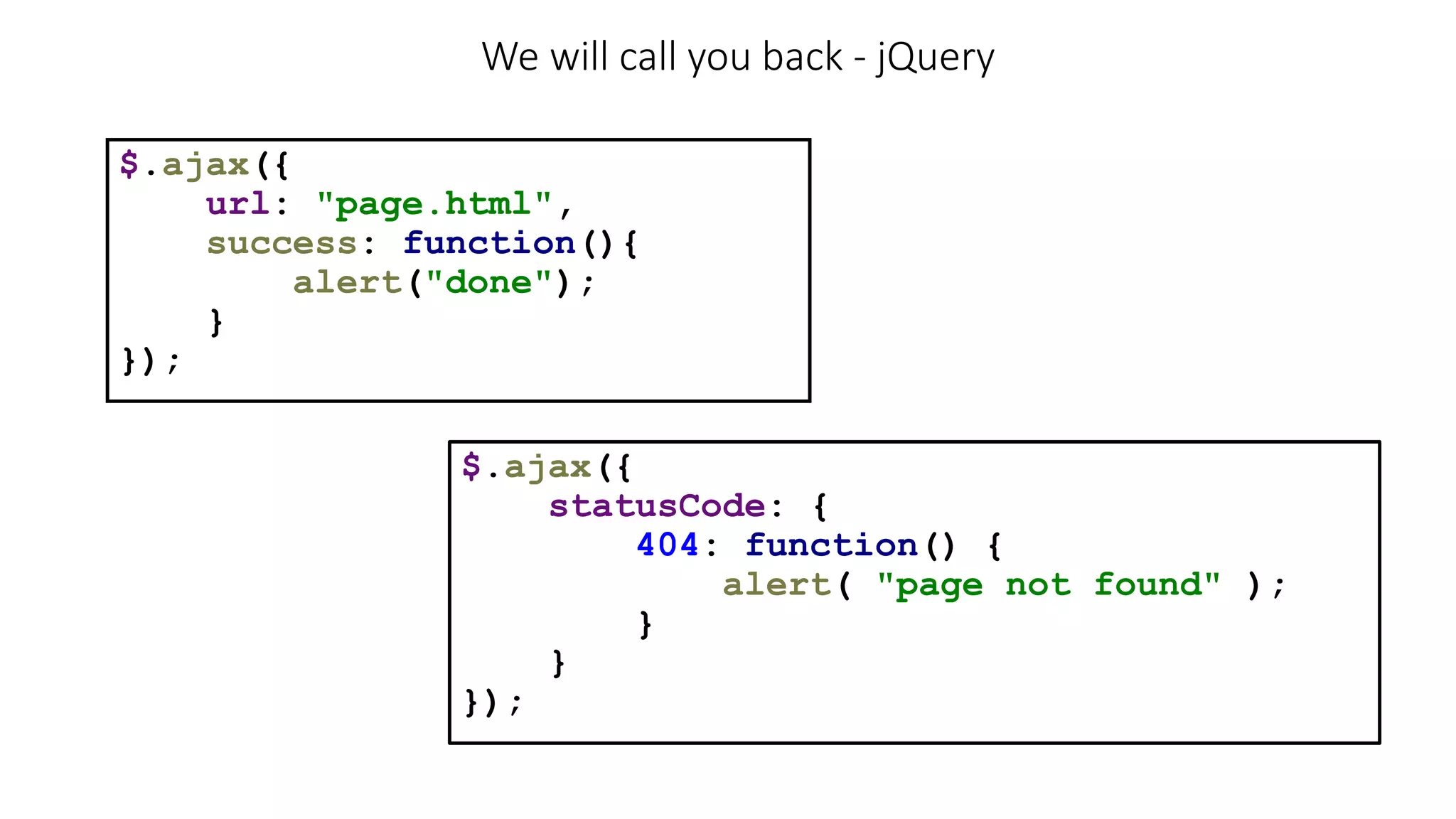
![We will call you back - Tkinter
import tkinter as tk
class Application(tk.Frame):
def __init__(self, master=None):
...
self.createWidgets()
def createWidgets(self):
self.hi_there = tk.Button(self)
self.hi_there["text"] = "click me"
self.hi_there["command"] = self.say_hi
self.QUIT = tk.Button(self, text="QUIT", fg="red",
command=root.destroy)
def say_hi(self):
print("hi there, everyone!")
root = tk.Tk()
app = Application(master=root)
app.mainloop()](https://image.slidesharecdn.com/asynchronous-160924053622/75/Introducing-to-Asynchronous-Programming-15-2048.jpg)


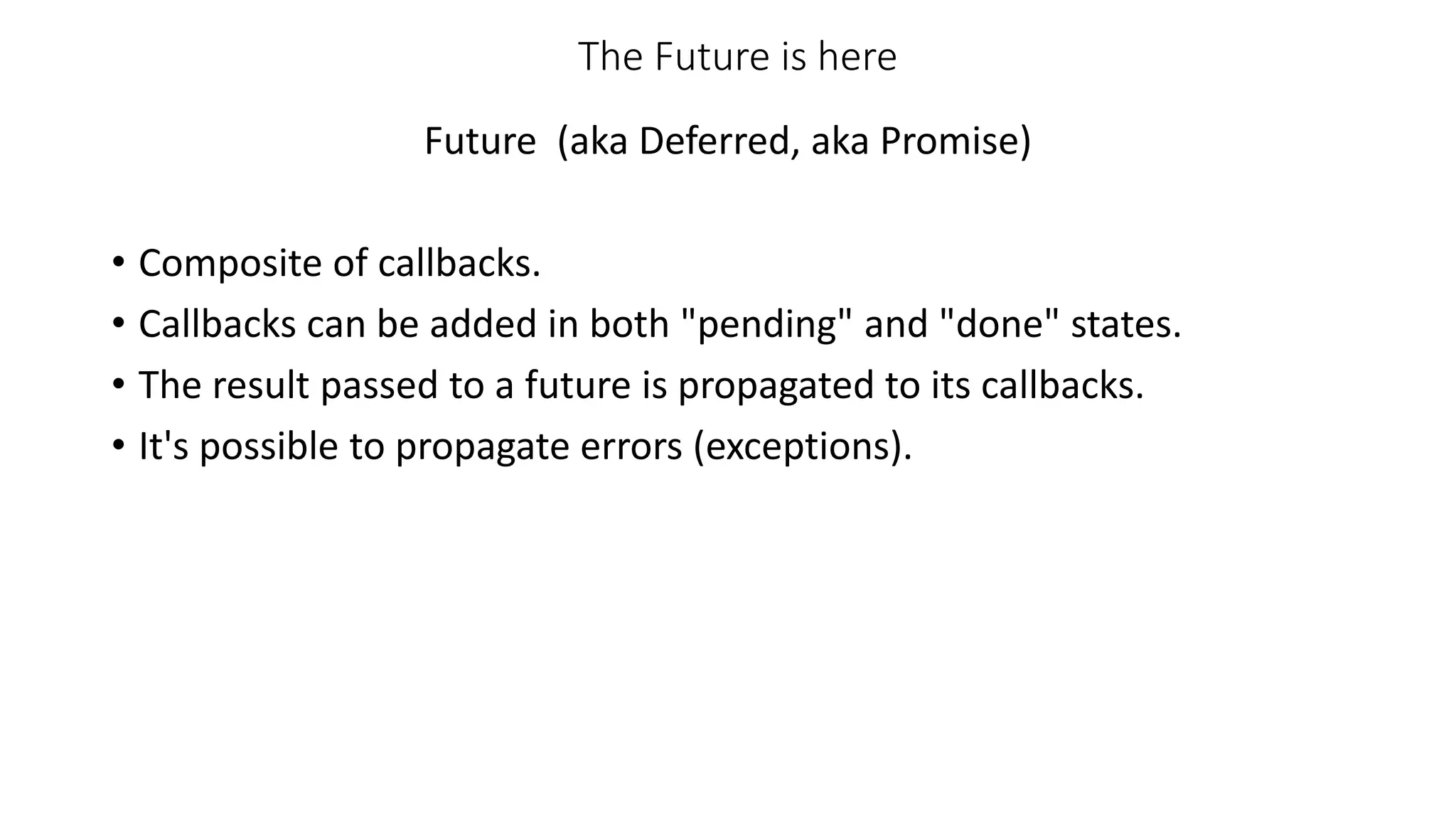
![The Future is here – Simple example
class Future:
_nope = object()
def __init__(self):
self._callbacks = []
self._result = self._nope
def add_callback(self, function,
*args, **kwargs):
future = Future()
self._callbacks.append(
(function, args, kwargs, future))
if self._result != self._nope:
self.done(self._result)
return future
def done(self, result=None):
self._result = result
while self._callbacks:
function, args, kwargs, future =
self._callbacks.pop()
func_result = function(
result, *args, **kwargs)
future.done(func_result)
def callback1(result):
print('Callback 1 gets:', result)
return 'callback1_result'
def callback2(result):
print('Callback 2 gets:', result)
return 'callback2_result'
def callback_n(result, n=1):
print('Callback {} gets:'.format(n), result)
return 'callback_n_result'
future = Future()
new_future = future.add_callback(callback1)
.add_callback(callback2)
future.done('Initial data')
new_future.add_callback(callback_n, n=3)
Callback 1 gets: Initial data
Callback 2 gets: callback1_result
Callback 3 gets: callback2_result](https://image.slidesharecdn.com/asynchronous-160924053622/75/Introducing-to-Asynchronous-Programming-19-2048.jpg)
